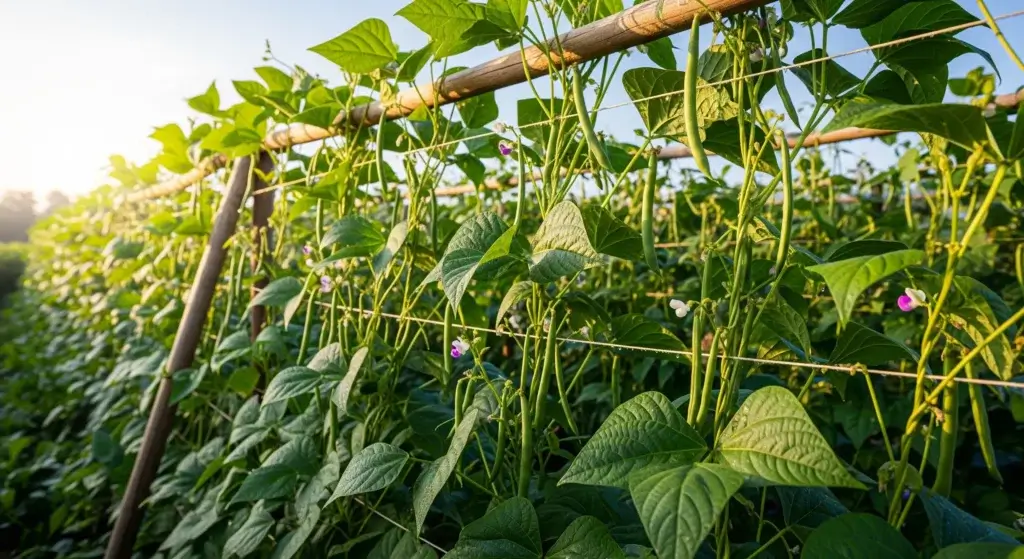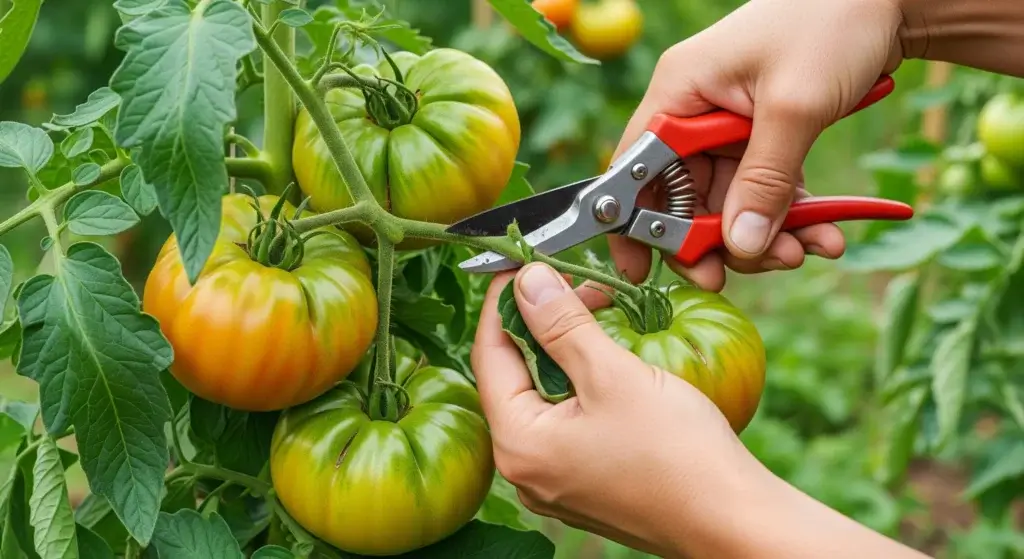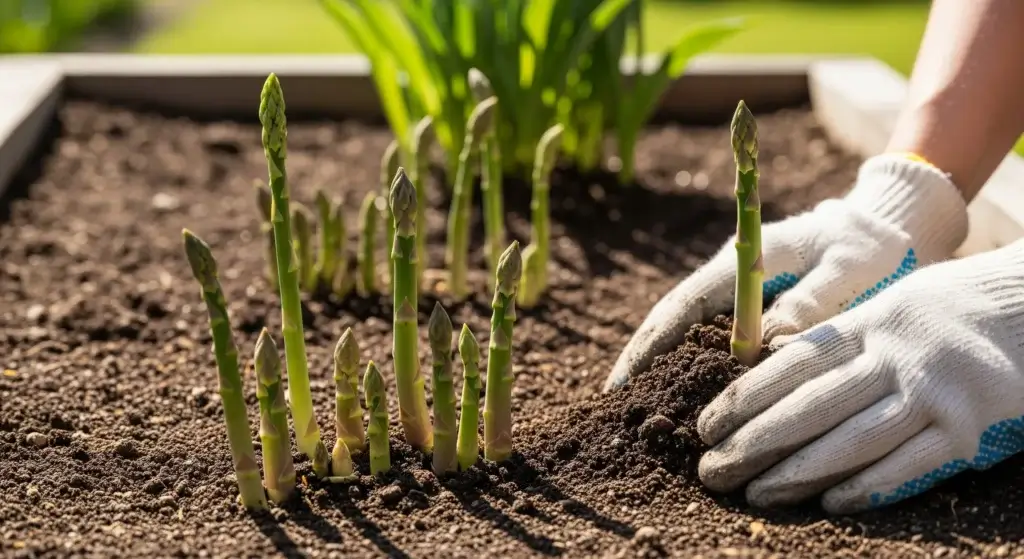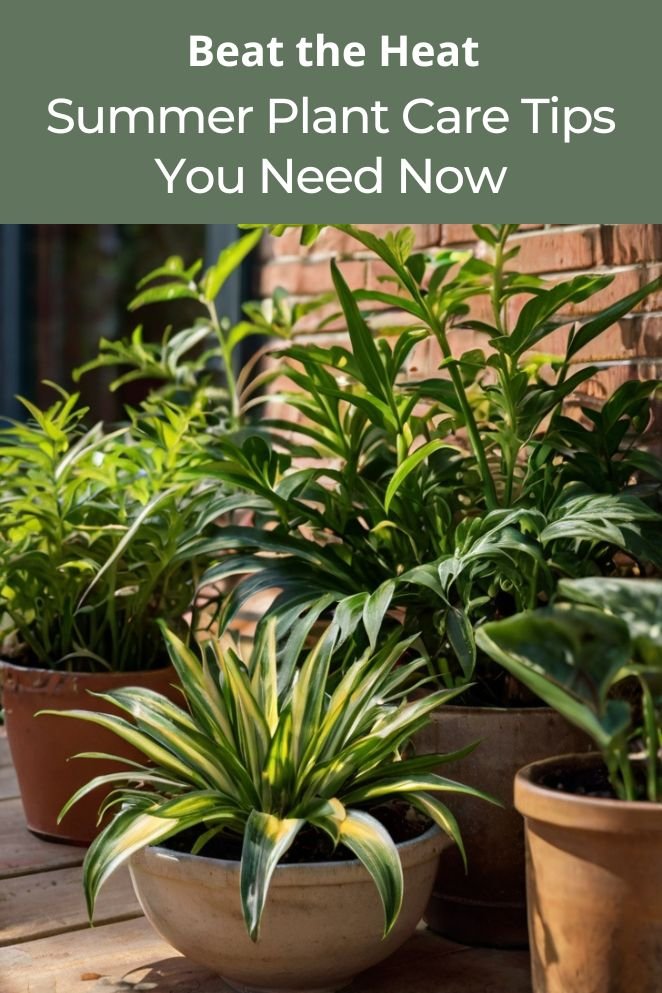
Summer is a time of growth, sunshine, and vibrant blooms in the garden.
However, it’s also a season that presents unique challenges for gardeners.
The heat can be intense, the days long, and water scarce.
To keep your plants happy and thriving during these hot months, it’s crucial to adapt your gardening practices.
In this guide, we’ll share practical and effective summer plant care tips to ensure your garden remains lush and healthy all season long.
Challenges Plants Face During Summer
Summer brings long, sunny days and the joy of watching our gardens flourish.
However, this sunshine comes with a hidden cost for our plants. Here’s a look at the key challenges plants face during the hot summer months:
Heat stress
Prolonged exposure to high temperatures can cause plants to wilt and become stressed.
Heat stress can slow down the growth of plants, cause leaves to curl, and even lead to plant death if not managed properly.
Plants may also experience sunscald, where fruit or leaves scorch due to direct sunlight
Drought conditions
The summer heat often comes with little to no rain, creating drought conditions that can seriously harm plants.
Without enough moisture, plants struggle to maintain their water balance, leading to a host of problems.
Dry soil from lack of rain and high evaporation makes it difficult for plants to take up the water they need.
This can cause them to wilt, turn brown, and eventually die if they don’t get enough water.

Pests and diseases
Warm weather often leads to more pests and the spread of diseases.
Some common pests are aphids, whiteflies, spider mites, leaf miners, and scale insects.
These pests can weaken plants and damage leaves, stems, and roots by sucking sap or piercing plant cells.
Fungal diseases and insect activity increase in summer because of higher moisture and temperatures.
Diseases like powdery mildew and root rot can become major issues during this time.
Soil depletion
Soil depletion occurs when nutrients in the soil are used up faster than they are replaced, which is common during the growing season when plants are actively growing and consuming more nutrients.
This depletion can lead to various problems for plants.
Without enough nutrients, plants may experience stunted growth, where they do not grow as tall or as vigorously as they should.
Leaves may turn yellow due to a lack of essential nutrients like nitrogen.
Additionally, soil depletion can result in reduced production of flowers and fruits, as plants do not have the necessary resources to support these functions.
Sunburn
Sunburn in plants happens when they get too much direct sunlight.
This can damage their leaves and flowers, similar to how human skin can get sunburned.
When plants get sunburned, you might see white or brown patches on the leaves.
These patches indicate areas where the plant tissue has been damaged by the intense sunlight.
Sunburn can weaken the plant, making it less healthy overall and affecting its growth and vitality.
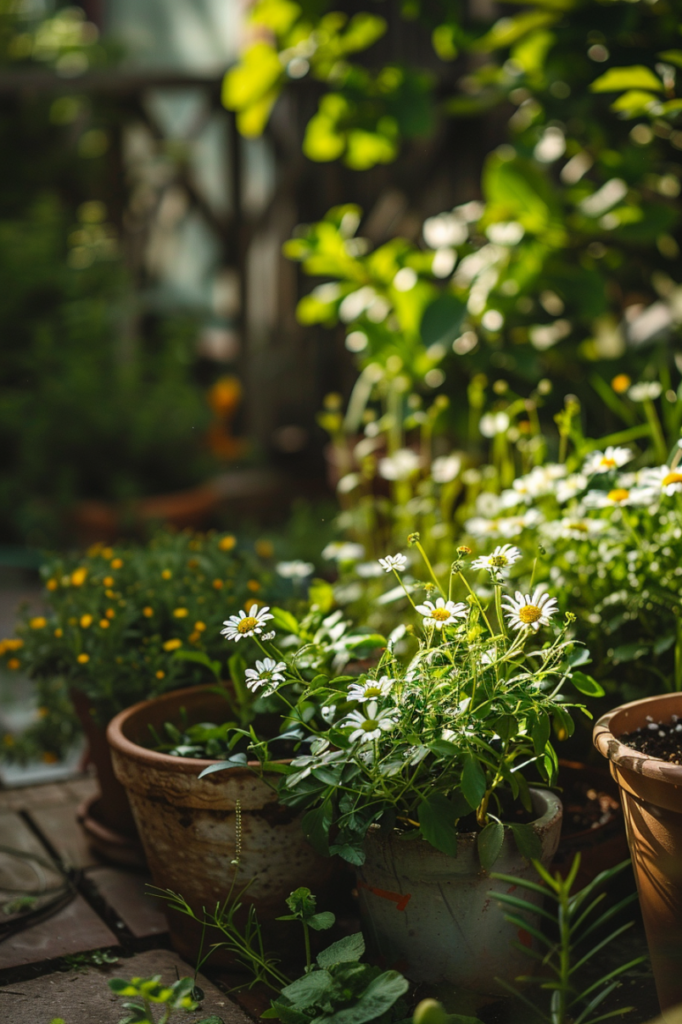
Summer Plant Care Tips
Watering wisely
Proper watering is essential during the summer.
It’s important to focus not only on the amount of water but also on the timing and method.
Water your plants early in the morning or late in the evening to minimize evaporation and ensure the water reaches the roots.
Use deep watering techniques to encourage roots to grow deeper into the soil, which helps plants become more drought-resistant.
Shallow watering can result in weak root systems, so make sure the water penetrates the soil deeply.
Additionally, applying a layer of mulch around your plants can help retain soil moisture, suppress weeds, and keep the soil cool.
Soil care
A successful garden starts with healthy soil. It’s crucial to have soil that’s nutrient-rich and drains well.
To achieve this, enrich your soil with plenty of organic matter, like compost or well-aged manure.
This not only improves water retention but also supplies essential nutrients to your plants.
Use a balanced, slow-release fertilizer to ensure your plants receive consistent nutrients throughout the growing season.
It’s important to avoid over-fertilizing specially at the peak summer, as this can harm your plants by causing nutrient burn and can increase soil temperature.
Pest and disease control
In warmer weather, pest and disease issues can escalate quickly, so it’s important to stay vigilant.
Watch for pests such as aphids, spider mites, and whiteflies by regularly checking your plants.
Take action promptly if you notice any signs of infestation.
Encouraging beneficial insects like ladybugs and lacewings, which naturally prey on pests, can help manage infestations.
Consider using companion planting techniques to deter unwanted insects and explore organic pest control options if needed.
For disease prevention, ensure plants are spaced appropriately to allow good airflow around them.
Promptly remove any diseased leaves or plants to prevent infections from spreading.
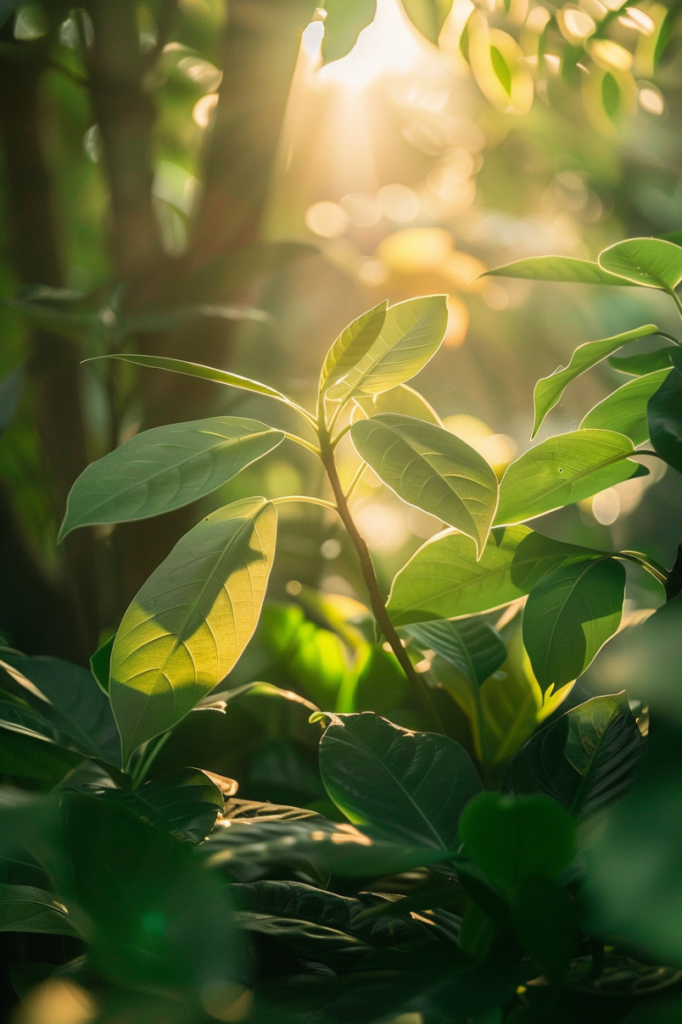
Pruning and deadheading
Keeping your plants healthy and promoting new blooms involves regular pruning and deadheading.
During summer, pruning is essential for shaping plants and improving air circulation.
It’s best to avoid pruning during the hottest part of summer to prevent stressing the plants.
Deadheading, or removing faded flowers, encourages the plant to produce more blooms and maintains a neat appearance.
This practice also helps prevent diseases from spreading in your garden.
Shade and protection
Giving your plants a little extra protection can greatly benefit their health during the summer months.
You can use shade cloth, garden umbrellas, or strategically plant taller plants to provide shade for more sensitive plants.
This helps prevent them from getting sunburned or stressed from the heat.
If there’s a heatwave coming, consider moving potted plants to a shaded spot.
You can also set up temporary shade structures in your garden as needed.
Using windbreaks like fences, hedges, or garden netting can also shield plants from strong summer winds, further protecting them from potential damage.
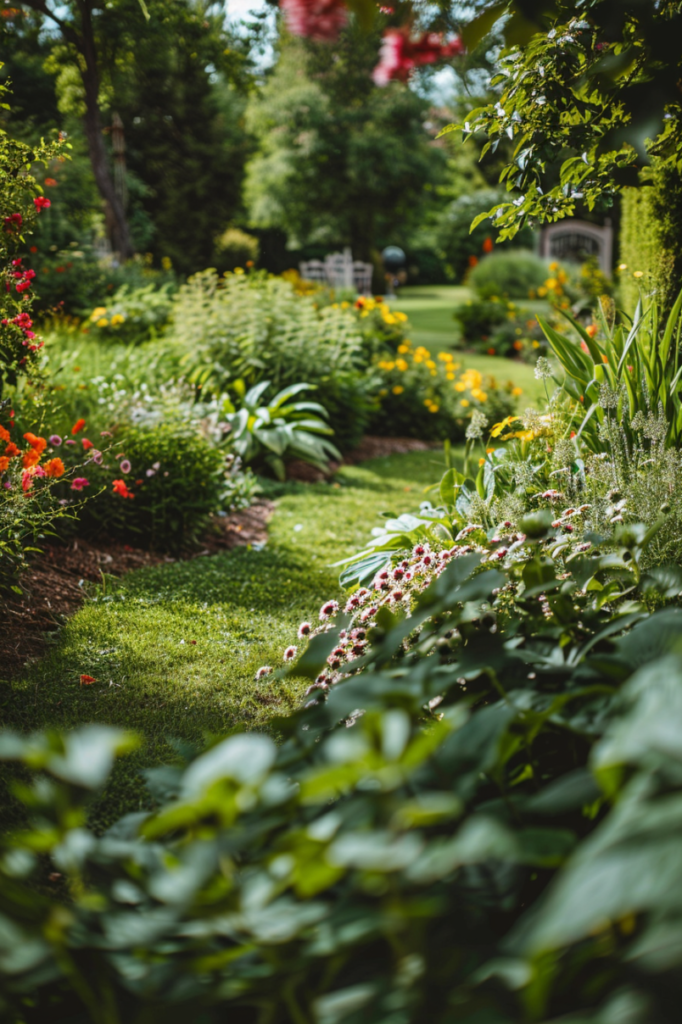
Conclusion
Summer gardening can be challenging, but with the right care and attention, your garden can thrive.
Remember to water wisely, care for the soil, control pests and diseases, prune regularly, and provide shade and protection as needed.
Whether you’re tending to vegetables, flowers, or herbs, these tips will help ensure your garden remains a beautiful and productive space throughout the summer.
FAQs
It depends on the type of plants and soil. Generally, deep watering once or twice a week is better than frequent shallow watering. Check soil moisture regularly.
Organic mulches like straw, grass clippings, and wood chips are great. They help retain moisture, keep the soil cool, and add nutrients as they decompose.
Provide shade using cloths, umbrellas, or taller plants. Ensure your plants are well-watered and mulch around them to keep the soil cool.
Look for signs like wilting, yellowing leaves, and scorched edges. Provide shade and water them deeply to alleviate stress.

